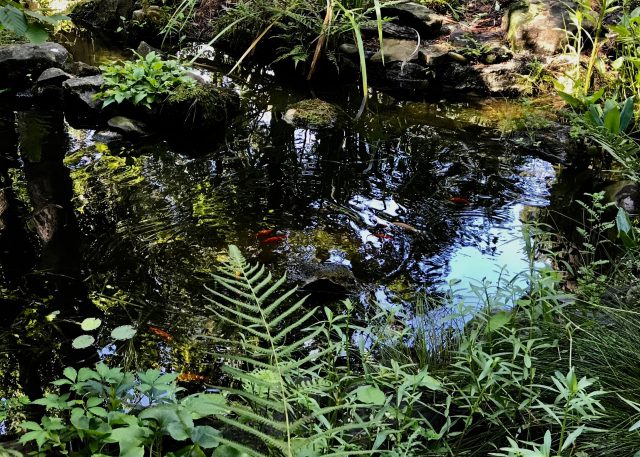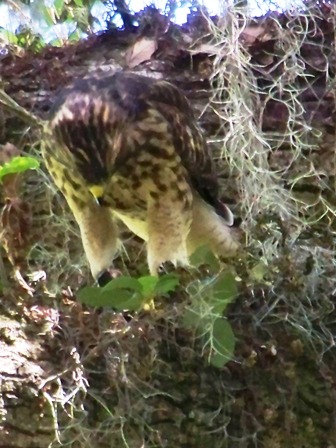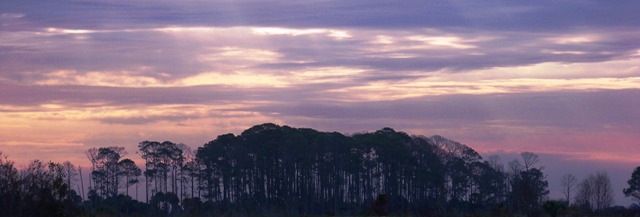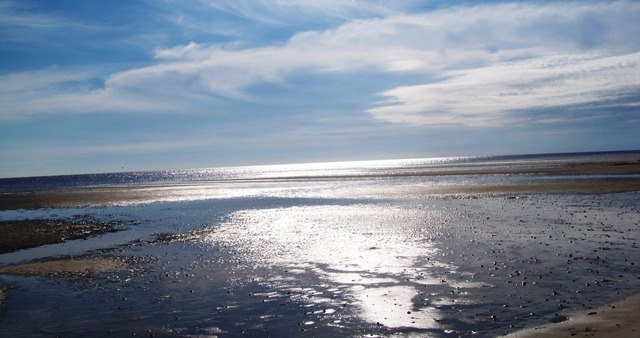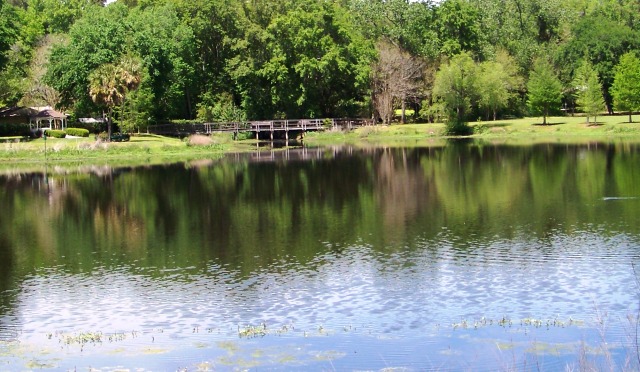Alan Watts tells a story about translating Zen texts into English and the selecting of those books. He consulted a Zen master who found the translation idea pretty preposterous, particularly the selection of certain books. After all, any and every book is Zen, be it Alice in Wonderland, the Bible, or a dictionary for “the sound of rain needs no translation” is what the Zen master had to say on the matter.
There is no separating Zen from being alive.
The first time I came across the Alan Watts story was some years ago, when I was on my own quest for anything Zen, wanting to capture and analyze Zen so I could keep it as a constant companion, completely oblivious to the fact that everywhere I went, there I was, in the eternal presence of Zen.
For everyone there is a way but there is no one way for everyone. I get that now.
But then, I explored quotations and Zen memes to suit any occasion, read books about Zen, and listened in rapt attention to Pema Chodron offer Zen just as it is as. And from her lips to my ears, the sound of rain needed no translation but only when she whispered it.
So, still translating with no Zen of my own or so I thought.
It may have been in the fall or spring. In Florida it is the color of the leaves that distinguishes those two seasons, so similar in temperature. It was raining with a constancy and clarity I have come to know of early morning rain, steel rod straight without wind.
It was just an hour or so into the light of day, and I was in the middle of monkey mind meditation. I have long forgot the pressing issue of that day—so important it was—or it may have been the frustration of yet another monkey mind day of meditation. Agitation has such an array of possibilities.
And then I was one with the rain. Just like that.
I don’t know when it started. All I know is that once I realized what was happening, it stopped, and I was back watching the rain with an awareness, an evenness of mind, that would stay with me for at least a few hours. I was completely present to each task but soon my mind started wandering and trying to explain that which does not translate.
I have had this happen to me three times in the years I have been meditating and it is much the same each time. I am aware of returning but not where I have been—that is a complete blank. And for the next few hours in the day, there is a heightened awareness, which I do my best to make stay, but I think too much about what was and not what is.
The moment is all I have and I don’t let it be enough.
Twice this meditative state has involved nature and once it involved what I can only describe as a feeling of knowing I was going somewhere. I was particularly tired that morning and quite low on energy yet I remember thinking “Oh, this will be good.”
And it was.
It was the longest time I have been “gone”—two to three hours—the heightened sense of awareness stayed with me for some days afterward and has never completely left. I turn to it when I find myself moving away from the moment I have. There is nothing back there and everything right here.
I questioned whether I had simply fallen asleep and maybe I did. It was some time before I told a friend, and she said Eckhardt Tolle had described a very similar experience and wondered the same thing about falling asleep. We always know when a moment changes us. And that is enough. The sound of the rain needs no translation.
There is no way to analyze or translate what is beyond our knowledge of the physical dimension. And considering human limitations, not the least of which is our penchant for labels, I have no doubt we deny what we know to be true. We have words but they are not always what they once were.
Consider the Snark in Lewis Carroll’s “The Hunting of the Snark.” The poem might be about the unanswerable theological or philosophical questions or simply nonsense, without meaning at all. (However, the idea makes a very interesting episode of Inspector Lewis [Series 5, Episode 1]).
In the poem, there are nine tradesmen and one beaver who go in search of the Snark—and if this reminds you of a snipe hunt—when they find the Snark, it “gently and softly vanish[es] away [to] never be met with again.” And to this end, the episode of Inspector Lewis offers an interesting twist.
Detective Constable Hathaway tells an anecdote from the late 1870s about a young girl who writes to Carroll, wanting to know why he didn’t explain the Snark to which Carroll responds, “Are you able to explain things you can’t yourself understand?” It works well with the script but I can find no tell of such tale.
Reverend Dodgson, an early Carroll biographer, writes in 1876 of a young girl who loves the poem so much that she recites it at will, whether or not she has an appreciative audience. Her favorite venue, it seems, was the carriage ride. She knew a captive audience when she had one.
Lewis Carroll, writing to an American friend about the Snark says “I’m very much afraid I didn’t mean anything but nonsense. Still, you know, words mean more than we mean to express when we use them” (The Life and Letters of Lewis Carroll, Stuart Dodgson Collingwood, 1899).
The last line of the poem is “for the Snark was a boojum, you see,” an animal of the imagination and in 1922, Godfrey Sykes would name the Boojum tree found in the Baja Peninsula for it is like no other. Even in physics, there is a geometric pattern on the surface of helium known as a boojum. At the moment, there is a brewing company in the Carolinas with the name of Boojum Brewing.
It seems to me that once again, everywhere we go, there we are, in the eternal present defying definition. All we have is awareness, preferably heightened.
And somewhat tangentially related is a “what would you choose” scenario of two choices: a.) $1 million in cash, free of any taxation burden; b.) returning to my 40s, knowing everything I know now, as I approach 70.
Even if this were a multiple guess question my answer would be immediate and the same. (In full disclosure, forced into either or, I chose returning to my 40s but life is neither this nor that. It is on its very good days, a Boojum).
Money has never been an attraction, much to the chagrin of those who love me. I am not good with money because I just don’t care about having more than enough to meet my needs, and only this has been true in the last act of my life. For most of it, I followed the magical thinking form of finance, of which the worry was harder than maintaining a monthly spreadsheet.
And I have to admit that I enjoyed my 40s but mostly, I became comfortable with each decade as it revealed itself, a series of leit motifs in the overarching experience of life, not that revelation is always pleasant. Each decade has required adjustment but I have no wish to return to any time, even the past nanosecond. Been there, experienced that.
Only the eternal present offers what is new under the sun.










